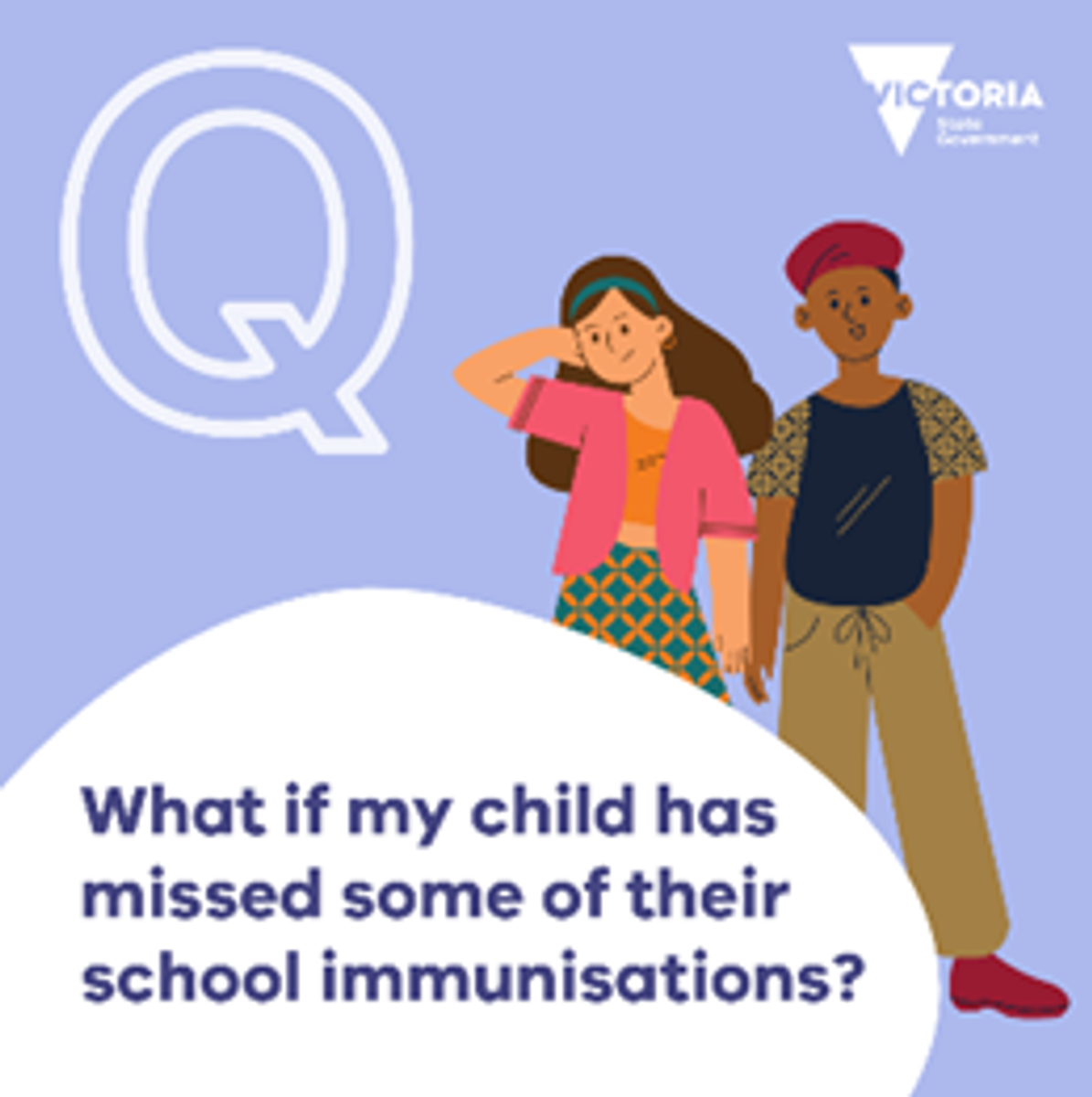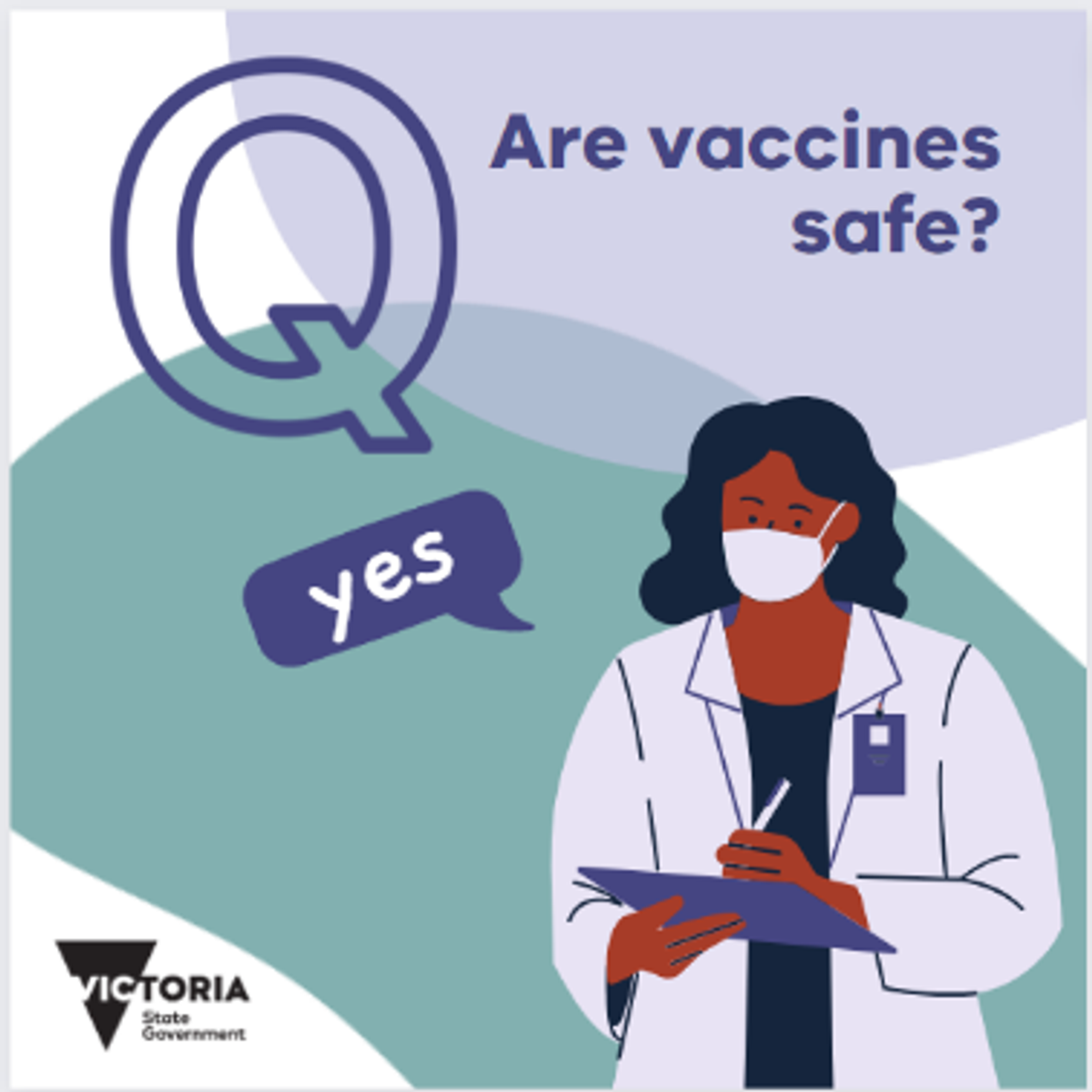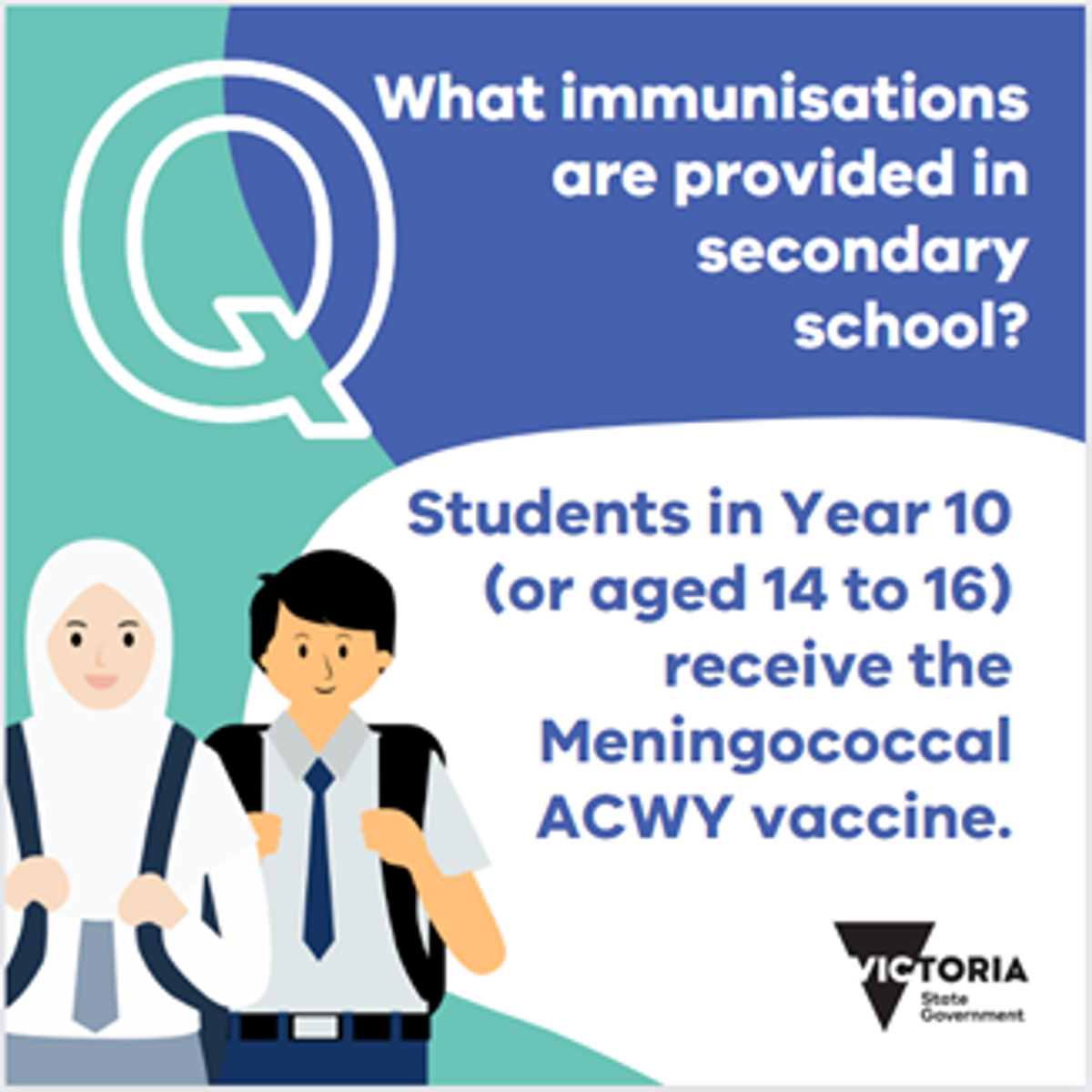Immunisations
Leticia Kreso - First Aid Officer

Immunisations
Leticia Kreso - First Aid Officer


If your child has missed any of their secondary school-based immunisations, speak to your school, GP, pharmacy, or local council immunisation service about how they can catch up. Many community pharmacies offer free immunisations to eligible adolescents.
To see if your child is due for any immunisations, check your child’s immunisation history statement on the Australian Immunisation Register using your MyGov account. If your child is over 14 years old, they will need to access their immunisation history statement themselves through their own MyGov account or the Medicare mobile app.


Yes, vaccines are safe. The vaccine development process is very thorough. All vaccines used in Australia are rigorously tested by the Therapeutic Goods Administration before and after they are approved.
Even once vaccines are in use they continue to be monitored for safety and effectiveness.
Immunisations are the best way to keep your child safe from harmful diseases. When you protect your child from these diseases, you also protect others in your family and community who cannot be immunised, by limiting the spread of disease.
At secondary school-based immunisation sessions, students are vaccinated by immunisation nurses who are specially qualified to provide this service. Your local council works with your child’s school to provide a safe environment for students, staff, and the immunisation team.
https://www.health.gov.au/resources/videos/90-second-animation-meningococcal-acwy-vaccine?language=en
Learn more: https://www.betterhealth.vic.gov.au/health/healthyliving/immunisation-in-secondary-schools


Meningococcal disease occurs when meningococcal bacteria, commonly found in the nose or throat, invades the body, and causes serious disease. Older teenagers and young adults are most likely to carry the bacteria and spread it to others.
Invasive meningococcal disease (IMD) is a rare but serious disease. It most commonly presents as septicaemia (infection in the blood, also known as ‘bacteraemia’) or meningitis, (inflammation of the membrane covering of the brain). Occasionally, severe infection can also occur in the joints, throat, lungs, or intestines.
Although the majority of people will recover if the infection is diagnosed early, the disease can cause complications that may result in permanent disabilities through loss of limbs, deafness, blindness, scarring, kidney, or liver failure. Death can occur in up to 10 per cent of cases.
Globally, meningococcal serogroups A, B, C, W and Y most commonly cause disease. Vaccination is the key prevention against meningococcal disease.
The Meningococcal ACWY vaccine, Nimenrix®, is a four-in-one combined vaccine for protection against meningococcal A, C, W, Y strains.
Studies have shown that this vaccine can provide up to 97 per cent immunity in adolescents.
Meningococcal ACWY vaccines have been shown to be safe in multiple large population studies (conducted in countries after the vaccines became available) in people of different ages, from infants to adults. Most reactions after vaccination are mild and resolve on their own. The vaccine does not contain any live bacteria and cannot cause meningococcal disease.
The Meningococcal ACWY vaccination is a single injection administered into the upper arm.
To Learn more:
| http://www.betterhealth.vic.gov.au/health/healthyliving/immunisation-in-secondary-schools |